Donald Trump may be a world of chaos all by himself, but the world beyond Trump is changing in dramatic ways, often with little notice. We’d like to tell you about it and we’re keeping track of these global changes, from the incremental to the monumental, so that you don’t have to.
Sign up for our weekly newsletter of the biggest news in the world delivered to your inbox every Sunday.
Kenya — October 06, 2017
International observers worry Kenya may be spiraling out of control
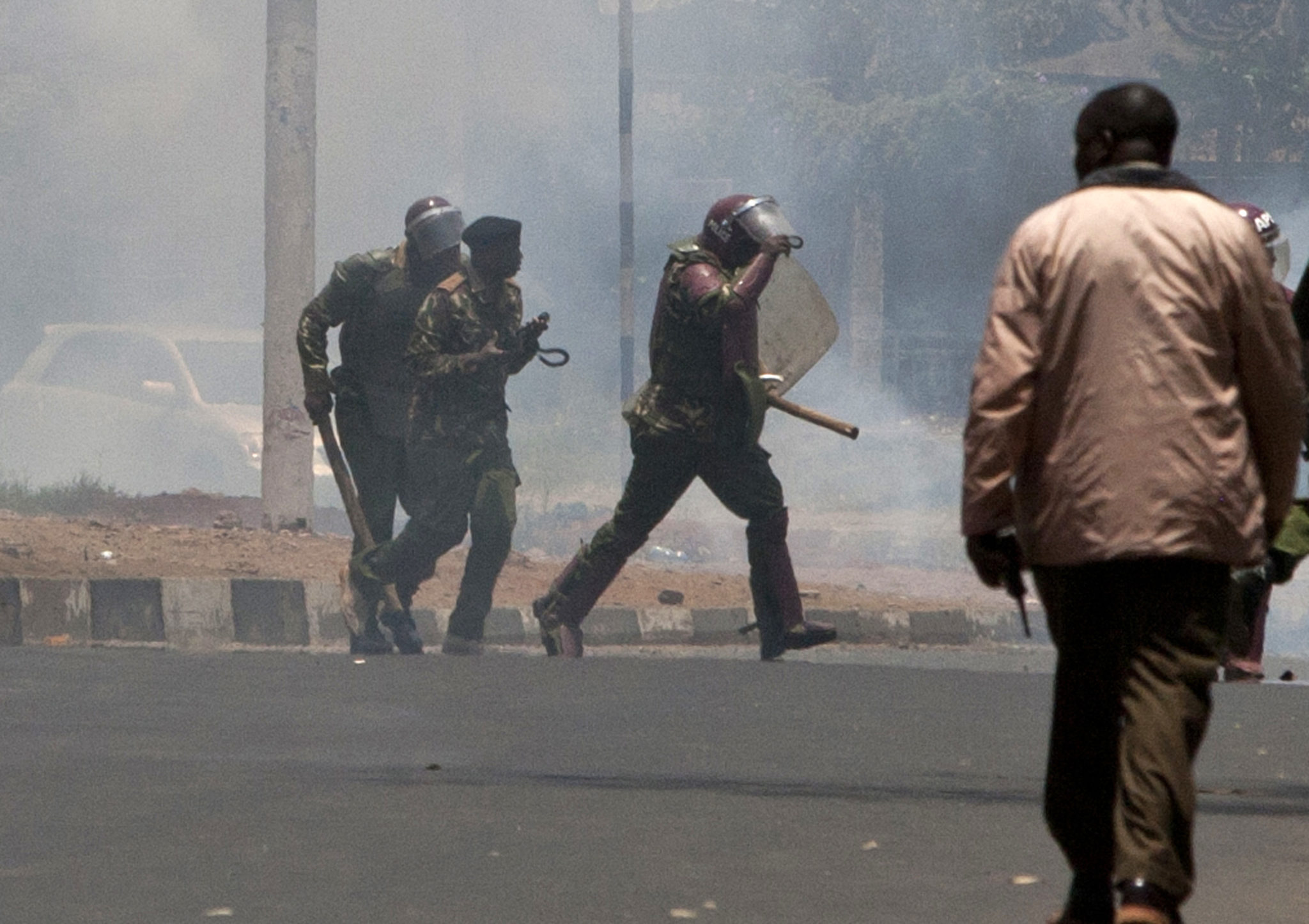
When Kenya’s Supreme Court annulled the country’s August presidential election over widespread irregularities, practically the entire world hailed the move as a milestone for democracy in Africa.
Now, street violence between protesters and police is flaring throughout the country ahead of the do-over election scheduled for Oct. 26, and the heated political rhetoric shows no signs of cooling down. Western governments are openly expressing worry that widening chaos may send the country spinning out of control, potentially risking a return to the post-election violence that left over 1,200 dead following a disputed poll in 2007.
“The United States Government is deeply concerned by the deterioration in the political environment in Kenya in advance of the October 26 presidential election.”
At least one person died Monday while running away from teargas canisters fired by police. On Friday, supporters of opposition leader Raila Odinga poured into the streets to demand the removal of the head of the electoral commission.
Odinga has accused his opponent, President Uhuru Kenyatta, of delivering a televised speech while drunk, and called the president’s party “thieves” who stole the election.
The U.S. State Department said Friday it’s officially starting to get nervous.
“The United States Government is deeply concerned by the deterioration in the political environment in Kenya in advance of the October 26 presidential election,” the department said in a statement. “Unfortunately, in recent weeks actors on all sides have undermined the electoral commission and stoked tensions.”
The statement came with an implicit warning to Kenya’s political elites: “We are closely monitoring Kenya’s electoral process and what politicians are saying and doing,” the agency said, without giving more details.
That message echoed what an unnamed British diplomat told reporters in Kenya earlier this week. “Anyone who is found to be inciting or engaging in violence must be held accountable … the UK reserves right to take appropriate action which may include refusing or revoking visas,” the diplomat said, according to Reuters.
On Friday, the European Union issued a statement asking Kenyan politicians to refrain from making “unreasonable demands, threats of boycott or attempts to change electoral regulation.”
In August, President Uhuru Kenyatta defeated Odinga by a margin of 9 percentage points. But the opposition immediately cried foul, arguing the vote had been tampered with.
In the run-up to the election, the body of Chris Msando, the head of information, communication and technology at the Independent Electoral and Boundaries Commission (IEBC), the main body overseeing the polls, had been found murdered in the outskirts of Nairobi. His body showed signs of torture.
In an op-ed Friday in Kenya’s The Standard newspaper, local businessman Patrick Obath noted that election uncertainty is already undermining the country’s economy, and warned that, too, may get worse.
“There will be no winners if Kenya turns into a failed state,” Obath wrote.
— Greg Walters
Spain — October 06, 2017
Catalonia is still ignoring Spain’s warnings not to secede
Catalonia lawmakers plan to defy Spanish courts by holding a meeting of their regional parliament Monday to decide whether to declare independence, a senior Catalan minister says.
“The parliament will meet. The parliament will debate,” Catalan foreign minister Raül Romeva told the BBC Friday.
Spain’s Constitutional Court had issued an order Thursday banning the parliamentary session, at which lawmakers will debate whether to declare the region’s long-sought secession from Spain over territorial and cultural differences, following the results of the recent independence referendum.
The Catalan government’s decision to defy the order comes as little surprise – it had ignored a similar order from the court, which banned the referendum as unconstitutional, by holding the ballot in the first place.
— Tim Hume
Read more: Catalonia is still ignoring Spain’s warnings not to secede
Niger — October 05, 2017
U.S. Green Berets killed in ambush in Niger
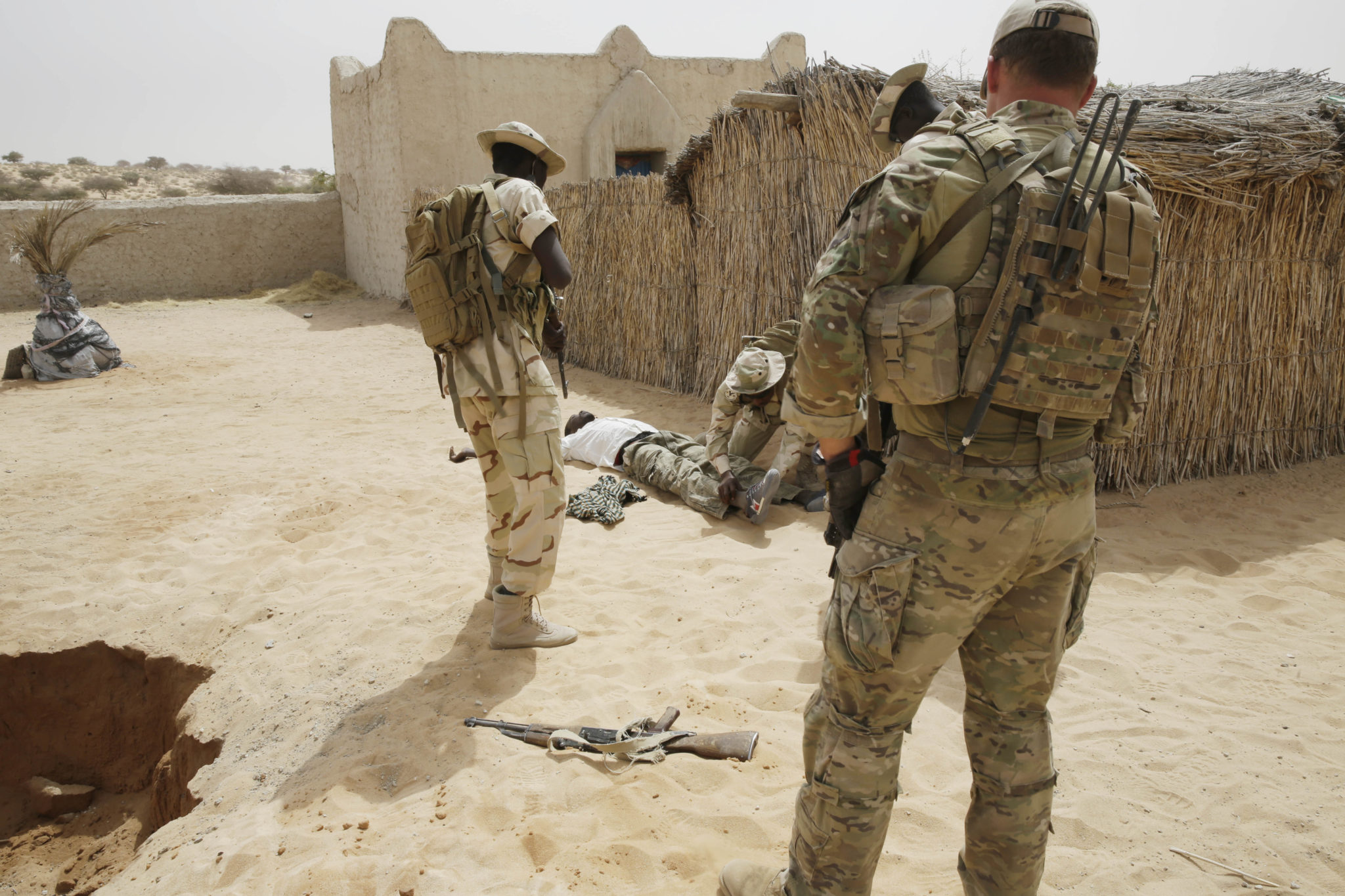
Five Nigerien soldiers and three U.S. Green Berets died on patrol in Niger Wednesday after they came under attack during a routine training exercise.
Two U.S. servicemen were also injured in what U.S. officials described as a likely ambush by al Qaeda in the Islamic Maghreb, the terror group’s North African affiliate.
A Niger diplomatic source told Reuters the attack originated on the border of Niger and Mali.
“We can confirm reports that a joint U.S. and Nigerien patrol came under hostile fire in southwest Niger,” a spokesman for the United States Africa Command told the New York Times. The Pentagon confirmed the fatalities Thursday morning.
The patrol was attacked 120 miles north of the capital Niamey, close to the Mali border where the terror group is known to operate.
President Donald Trump was briefed on the attack during his return flight from Las Vegas Wednesday evening.
Around a dozen U.S. Army Special Forces provide training and assistance to their counterparts in Niger, including support for intelligence, surveillance and reconnaissance operations targeting violent extremist in the region.
Niger, an impoverished country roughly twice the size of California, shares borders with Algeria, Nigeria, Mali, and Libya — all of which suffer from active terrorist groups.
— David Gilbert
Read more: The U.S. is waging a massive shadow war in Africa, exclusive documents reveal
Spain — October 04, 2017
Rare TV address from Spain’s King add fuels to Catalan crisis
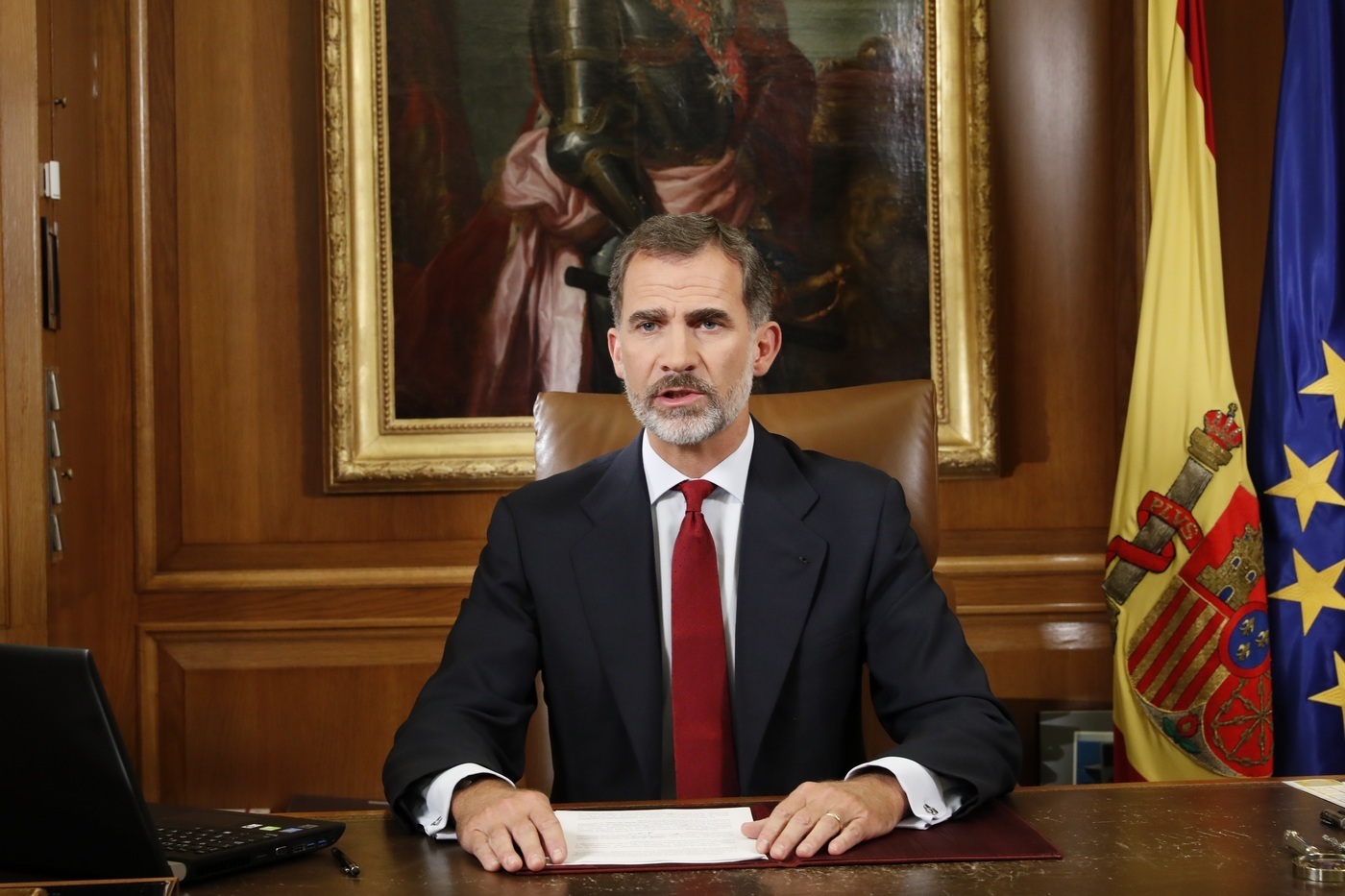
Spain’s King Felipe VI used a televised national address Tuesday to launch a stinging attack on Catalonia’s pro-independence movement, accusing the regional government of “irresponsible behavior” and of trying to “break the unity of Spain.”
The rare intervention from the 49-year-old monarch came as secessionist leader Carles Puigdemont said his government would declare independence “at the end of this week or the beginning of next.”
Backing the central government’s hardline stance, the King said Catalonia’s semiautonomous regional government had acted “outside the law” in holding Sunday’s referendum — a vote in which 90 percent of participants balloted to secede from Spain.
Vowing that the country would remain united, Felipe said Catalonia’s pro-independence leaders had shown an “inadmissible disloyalty towards the powers of the state.”
The King, who seldom comments on political matters, made no mention of the brutal crackdown by authorities attempting to block Sunday’s vote that resulted in 900 injuries, and further fueled calls for independence among many Catalans.
In a sign of the rising tensions set off by Spain’s worst constitutional crisis in decades, tens of thousands of Catalans demonstrated against police brutality Tuesday, while groups of pro- and anti-independence youths clashed in the streets.
On Wednesday, Spanish prosecutors said they were investigating Josep Lluís Trapero, the head of the 17,000-strong Catalan police force, for sedition. He is accused of defying court orders by failing to stop the referendum.
Spain’s Constitutional Court had ruled that the vote was illegal and the country is indivisible.
Catalonia, a wealthy region in northeast Spain with its own language and culture, has long sought independence.
Two million of 5.4 million eligible voters participated in Sunday’s vote, with the vast majority voting for independence. The result was expected given that many residents who favored remaining part of Spain boycotted the vote.
— Tim Hume
Read more: Catalans describe the chaos of trying to vote for independence
Cuba — October 03, 2017
U.S. to kick out majority of Cuban diplomats over mystery attacks
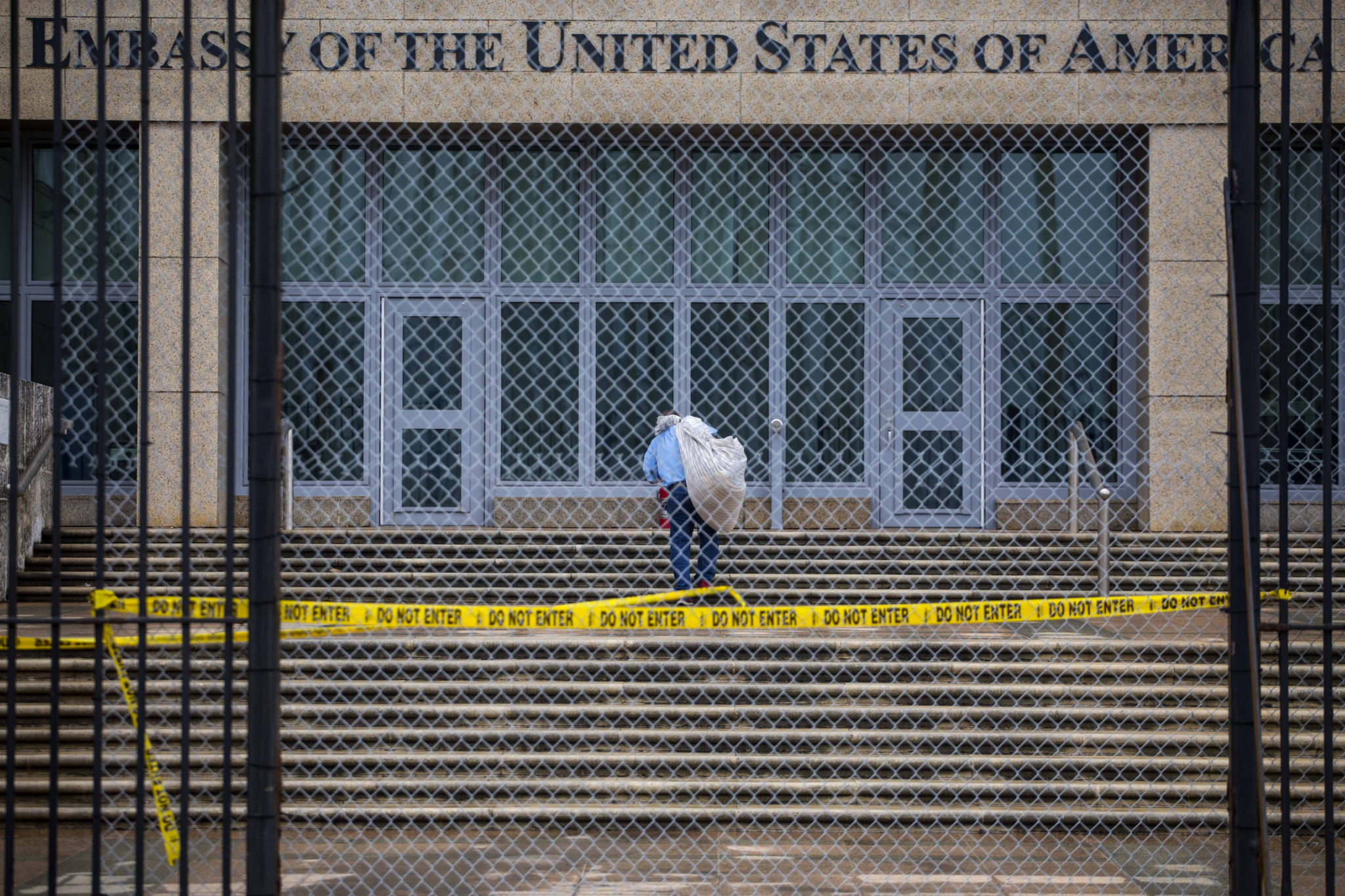
Two-thirds of all Cuban embassy staff are to be kicked out of the U.S., according to multiple reports. The move is a response to months of mystery “sonic attacks” against American officials in Havana which has now claimed 22 victims — despite the White House insisting the Cuban government is not to blame.
Sen. Marco Rubio preempted the expected State Department announcement by tweeting his support for the decision Tuesday.
Rubio said last week the U.S. should “expel a Cuban diplomat for every U.S. diplomat evacuated due to acoustic attacks.”
On Friday the U.S. said it would remove all but a skeletal staff from its Havana embassy in order to protect officials and their families.
A McClatchy source called this week’s decision “reciprocity” for the withdrawal from Havana.
U.S. officials first reported injuries from the acoustic attacks in October 2016. Washington says 21 diplomats have been injured by the attacks, however a recent report from McClatchy claims the figure increased to 25 in recent weeks.
A September investigation by AP said intelligence services remain baffled by the cause of the attacks, particularly as the range of injuries and circumstances vary wildly. Symptoms reported by the victims include dizziness, nausea, severe headaches, balance problems, brain swelling, and tinnitus.
Despite the White House insisting the Cuban government was not a suspect, the State Department has repeatedly told Havana it remains responsible for the safety of all foreign diplomats in Cuba.
The decision to expel embassy staff could jeopardize relations between Washington and Havana, which were on the mend after Barack Obama eased restrictions designed to isolate the Caribbean state.
— David Gilbert
Read more: U.S. to pull embassy staff out of Cuba as mystery attacks continue
The Philippines — October 03, 2017
Duterte’s drug war has now killed at least 54 children
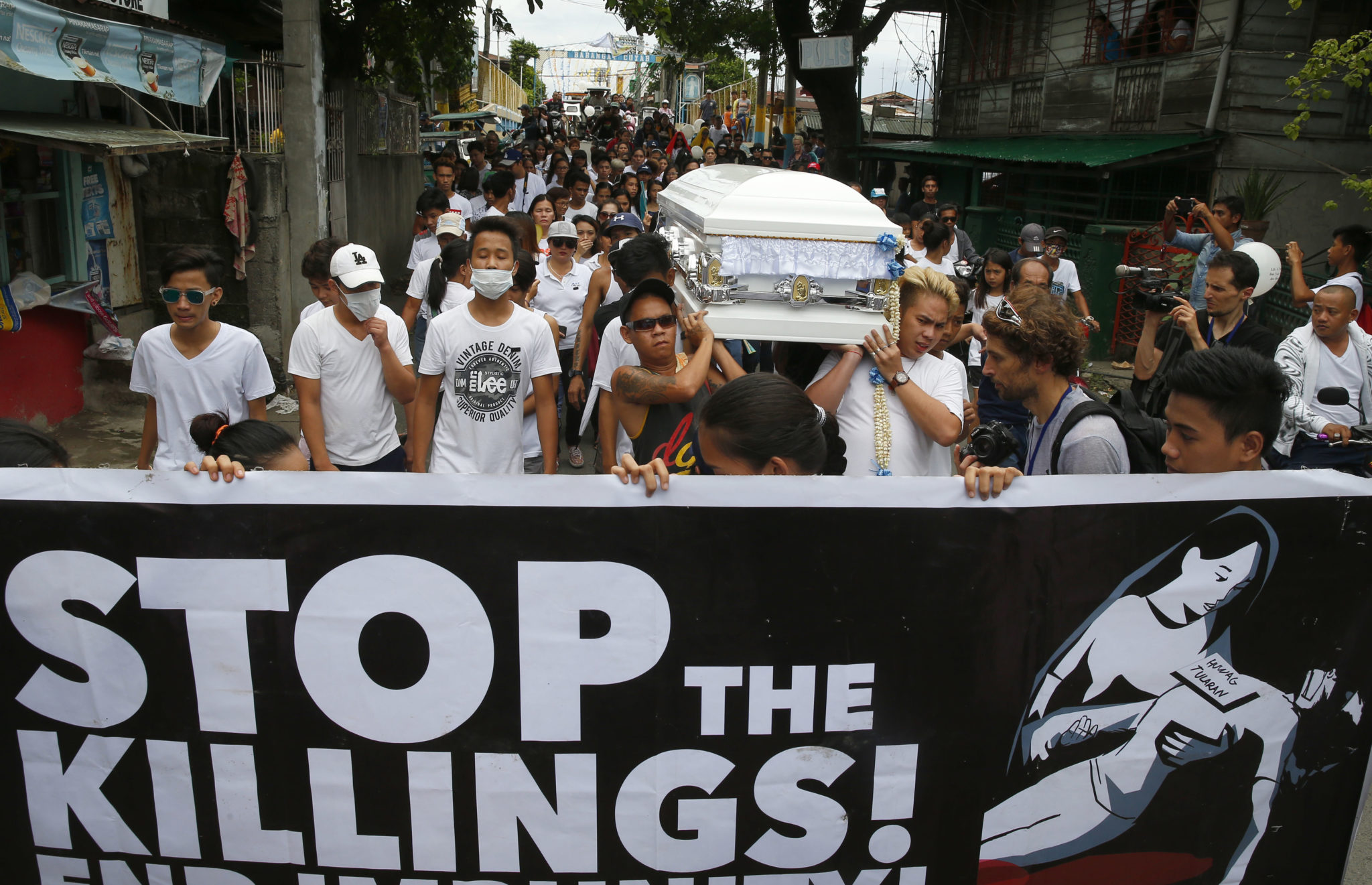
A human rights group urged the UN Monday to take decisive action against Rodrigo Duterte’s war on drugs after two children were deliberately targeted by Philippine police for extrajudicial executions last month.
Some 54 children have been killed during Duterte’s violent campaign, which began soon after he became president in June 2016.
Highlighting the need for a UN inquiry into the violence, Phelim Kine, deputy Asia director for Human Rights Watch, said the “willingness of Philippine police to deliberately target children for execution marks an appalling new level of depravity in this so-called drug war.”
“Until Duterte ends his abusive drug war and allows a UN-led international probe, child-killers among the police will continue to get away with murder,” he added.
On August 18, 14-year-old Reynaldo de Guzman was stabbed at least 30 times after his assailants wrapped his head in packing tape — a gruesome hallmark of Duterte’s war on drugs.
Two days earlier, anti-drug officers in Caloocan City killed 17-year-old Kian delos Santos.
Authorities claim Santos fired first, but witnesses and CCTV footage suggest the police executed the unarmed teen while he was in custody. His body was later dumped in an alley.
— David Gilbert
Read more: Rodrigo Duterte stands accused of mass murder but most Filipinos still love him
Egypt — October 02, 2017
Egypt caught ordering huge cache of illegal North Korean weapons
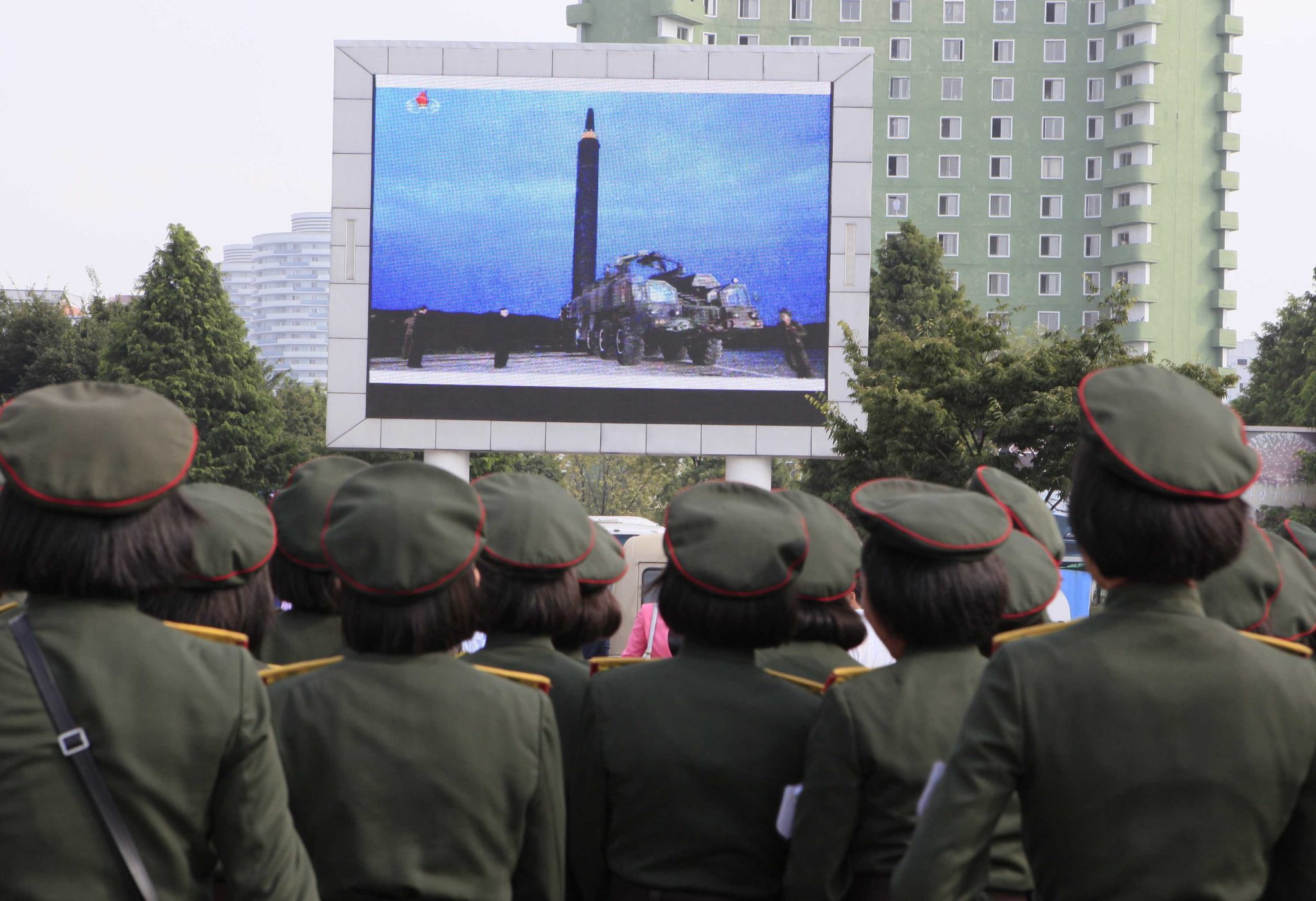
Egypt was unmasked Sunday as the unexpected buyer of a cache of 30,000 North Korean rocket-propelled grenades, an illegal deal that resulted in the U.S. withholding almost $300 million worth of aid, the Washington Post first reported.
Following a tip off from U.S. intelligence, Egyptian customs officials found the weapons last August hidden on a freighter under a shipment of iron ore.
Described as the “largest seizure of ammunition in the history of sanctions against the Democratic People’s Republic of Korea,” the destination for the weapons was initially unclear. However, a U.N. investigation found a complex web of transactions that led back to the Egyptian military, U.S. officials privy to the report told the Post.
According to the U.N., the deal was worth $23 million.
The U.N.’s findings influenced Washington’s recent decision to deny Egypt $95.7 million in aid, and to delay a further $195 million. The U.S. said at the time they were restricting payments because Egypt had failed to make progress on respecting human rights.
Despite being stamped with a manufacturing date of March 2016, the grenades were much older, and were copies of a rocket warhead known as the PG-7, a variant of a Soviet munition first built in the 1960s.
— David Gilbert
Read more: Kim Jong Un is going “seriously capitalist”
United Kingdom — October 02, 2017
Britain’s Monarch airline just went bust, leaving 110,000 stranded abroad
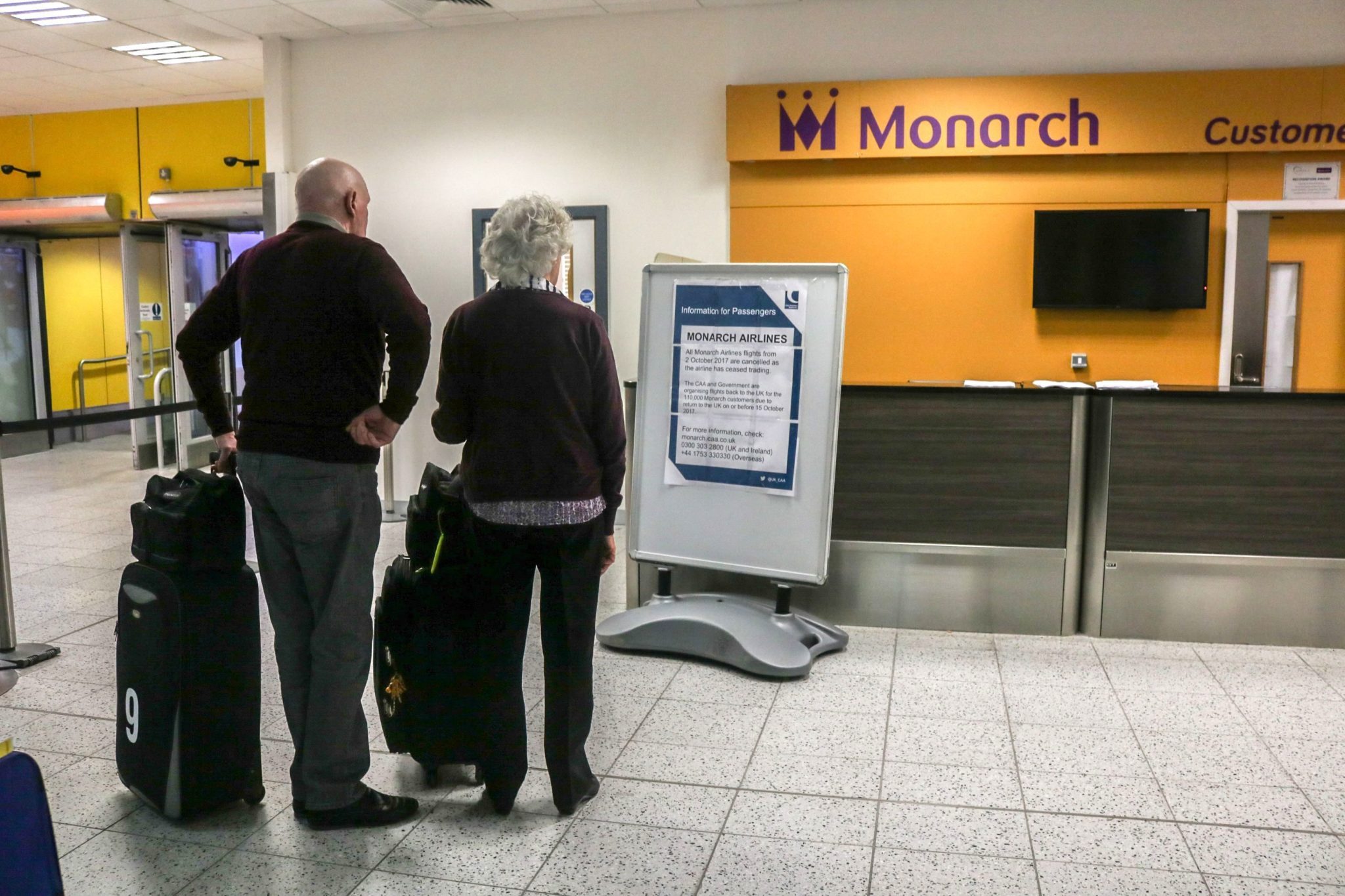
One of Britain’s largest airlines collapsed Monday, leaving 110,000 passengers stranded and 300,000 future bookings cancelled.
In response, the British government has ordered the biggest repatriation of its citizens since World War II, chartering 30 jets for angry holiday-makers.
Andrew Haines, chief executive of the Civil Aviation Authority, said: “This is the biggest U.K. airline ever to cease trading.”
Accounting firm KPMG is managing the sudden bankruptcy of Monarch, which flew to more than 40 destinations in Europe and the Mediterranean.
“Mounting cost pressures and increasingly competitive market conditions in the European short-haul market have contributed to the Monarch Group experiencing a sustained period of trading losses,” KPMG partner Blair Nimmo said.
“We understand that this will be a difficult and distressing time for many,” he added.
Founded in 1968, Monarch, Britain’s fifth largest carrier, employed around 2,750 people in the UK.
In a letter to staff, Monarch CEO Andrew Swaffield blamed “outside influences” for the collapse, noting how terror attacks in Turkey and Egypt robbed the carrier of once-profitable routes.
This forced the airline to compete for more competitive routes to Spain and Greece, driving down prices. A weaker pound was the next blow, damaging demand by making vacations far more expensive for Britons.
— Paul Vale
Read VICE News Guide to the World: September.
